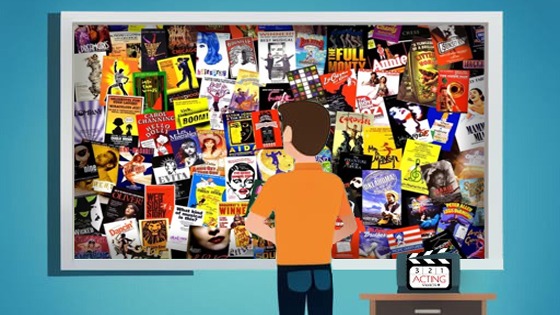
30 Sep Everything You Need to Know About Musical Theater
Introduction to Musical Theater
Musical Theater is a vibrant and dynamic art form that combines music, lyrics, and dialogue to tell a story through performance. Originating in the early 20th century, this genre has evolved into a global phenomenon that captivates audiences with its unique blend of drama, comedy, and musicality. It is distinguished by its use of song and dance to advance the plot and develop characters, creating an immersive experience that engages the audience on multiple levels. Musical Theater encompasses a wide range of styles and themes, from classic shows like The Phantom of the Opera to contemporary hits such as Hamilton.

The History and Evolution
The history of Musical Theater traces back to ancient Greek and Roman times, where music and performance were integral to storytelling. However, the modern form began to take shape in the late 19th and early 20th centuries, with the emergence of Broadway in New York City as a major hub for theatrical productions. The genre saw significant development through the works of pioneers like Rodgers and Hammerstein, who popularized the concept of integrating music and storylines. Over the decades, Musical Theater has continued to evolve, incorporating various musical styles and cultural influences, making it a diverse and ever-changing field.
Key Elements of Musical Theater
At the heart of Musical Theater are its three key elements: music, lyrics, and book. The music, composed by talented musicians, sets the tone and mood for the production, while the lyrics, written by lyricists, provide insight into characters’ emotions and advance the plot. The book, or script, serves as the foundation for the story, integrating dialogue and stage directions with the musical components. These elements work together to create a cohesive narrative that is both entertaining and emotionally resonant, allowing audiences to connect with the story on a deeper level.
Famous Musical Theater Productions
Some of the most iconic Musical Theater productions have left a lasting impact on the industry and popular culture. Classics like West Side Story, Les Misérables, and The Sound of Music have become synonymous with the genre, showcasing the timeless appeal of Musical Theater. In recent years, shows such as The Lion King, Wicked, and Dear Evan Hansen have continued to push the boundaries of the genre, introducing innovative storytelling techniques and engaging new audiences. These productions exemplify the creativity and versatility that Musical Theater brings to the stage.
The Role of Musical Theater in Entertainment
Musical Theater plays a significant role in the broader entertainment industry, influencing other forms of media and performance. Its impact is evident in film adaptations, television musicals, and even pop music, where theatrical elements often make their way into mainstream popular culture. The genre’s ability to combine music, dance, and narrative has made it a powerful tool for storytelling, allowing creators to explore complex themes and emotions in a compelling and accessible manner.
Becoming Involved in Musical Theater
For those interested in becoming involved in Musical Theater, there are various pathways to explore. Aspiring performers can start by taking acting, singing, and dance classes to develop their skills and gain experience. Community Theater groups and local productions provide opportunities to practice and showcase talent. Additionally, pursuing formal education in Musical Theater through colleges and universities can offer a more structured approach to learning the craft. Behind the scenes, careers in directing, choreography, and stage management also play a crucial role in bringing Musical Theater productions to life.
The Future of Musical Theater
The future of Musical Theater looks bright, with continued innovation and experimentation on the horizon. Advances in technology, such as digital projections and virtual reality, are likely to shape the way musicals are produced and experienced. Additionally, Musical Theater is expected to continue embracing diverse voices and stories, reflecting a broader range of cultural experiences and perspectives. This evolution will ensure that the genre remains relevant and engaging for future generations of audiences and performers.
Musical Theater remains a dynamic and influential art form that captures the imagination and hearts of audiences around the world. Its rich history, combined with its ability to adapt and innovate, ensures that it will continue to be a vital part of the entertainment landscape. Whether you’re a fan of classic productions or new, groundbreaking works, Musical Theater offers a unique and unforgettable experience that celebrates the power of music and storytelling.



